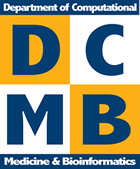Dr. Robert Gentleman
Principal Research Scientist,
Dept of Data Science at the Dana Farber Cancer Institute
Dr. Robert Gentleman, Ph.D. is a prominent Canadian statistician and bioinformatician, internationally recognized for his pioneering contributions to statistical computing and bioinformatics. He is the co-creator of the R programming language, a foundational tool in modern data science, and the founder of the Bioconductor project, a widely used open-source software platform for biomedical and genomic data analysis.
Dr. Gentleman is the Founding Executive Director of the Center for Computational Biomedicine at Harvard Medical School. Over his career, he has held academic appointments as well as senior leadership positions in industry, including at Genentech and 23andMe.
He has been honored with the Benjamin Franklin Award in Bioinformatics and is a Fellow of both the International Society for Computational Biology and the American Statistical Association. Through his groundbreaking work, Dr. Gentleman has bridged the gap between computer science and biology, transforming how researchers analyze biological data and shaping the future of computational biology.






